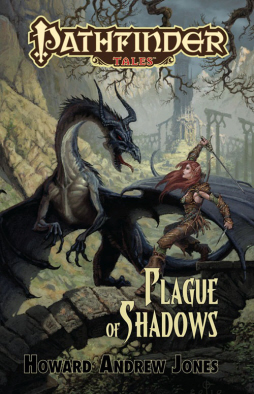 In part one of our interview Howard talked about one of his new novels, The Desert of Souls, and about historical fantasy; in part two we discussed the works of Harold Lamb and Howard’s efforts to collect and republish Lamb’s fiction; for our third and final installment Howard tells us about yet another newly released novel, and his experience with gaming:
In part one of our interview Howard talked about one of his new novels, The Desert of Souls, and about historical fantasy; in part two we discussed the works of Harold Lamb and Howard’s efforts to collect and republish Lamb’s fiction; for our third and final installment Howard tells us about yet another newly released novel, and his experience with gaming:
We’ve talked about historical fiction and historical fantasy, but you also have a history with gaming. Tell us a bit about your new Pathfinder novel, Plague of Shadows.
James Sutter, the editor of the Pathfinder line, is pretty selective about what he buys, so when I was invited to submit ideas I had to throw several his way before one finally took. I think the line in the pitch that hooked him was “Jirel of Joiry crossed with Unforgiven.” I made it clear that I wasn’t going to lift the plot or character, but that I was going to strive for a similar feel. As for the subject matter, I think that James described it pretty well in a blurb he posted recently: “It revolves around the exploits of not one but two bands of adventurers journeying in eastern Avistan, two decades apart. The parties are connected by Elyana, an elf seeking to cure her former adventuring partner (and former lover) Stelan from a curse that’s connected to events — and people — from their shadowy past. Elyana’s journey will take her and her companions from Taldor to Galt, into Kyonin and to the Vale of Shadows, where the consequences of events decades before will affect Stelan’s future.”
I wanted a story that started out with a linear feel so that it could move forward with momentum, then added complications as the adventure got under way. I think there are some nice character moments and well-motivated, though unexpected, plot turns. Personality wise Elyana didn’t end up being a Jirel of Joiry knock-off, although she’s definitely a kick butt protagonist, so she has that in common with the famous character. She’s also seasoned and clever, and she’s relentless — she simply never gives up. I had a lot of fun writing her.
…
Read More Read More
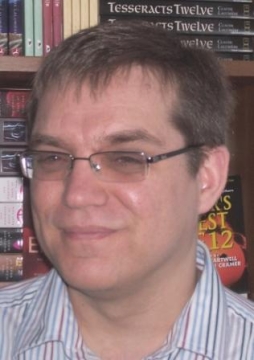 Claude Lalumière‘s involvement with fantastika has taken many forms. He’s been a retailer, an editor of anthologies, and a critic. But lately he’s become best known for his fiction. Claude’s writing is most often a surreal and precise blending of fantasy, horror, science fiction, superhero adventure, and any other genre that seems handy and to the point. His first collection, Objects of Worship, was published by ChiZine Publications two years ago; now a new set of linked short stories, The Door to Lost Pages, is about to hit shelves.
Claude Lalumière‘s involvement with fantastika has taken many forms. He’s been a retailer, an editor of anthologies, and a critic. But lately he’s become best known for his fiction. Claude’s writing is most often a surreal and precise blending of fantasy, horror, science fiction, superhero adventure, and any other genre that seems handy and to the point. His first collection, Objects of Worship, was published by ChiZine Publications two years ago; now a new set of linked short stories, The Door to Lost Pages, is about to hit shelves.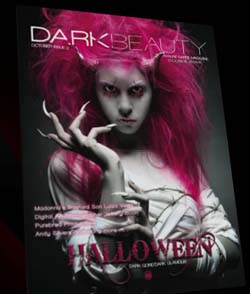
 I’m pleased to interview my great friend and writer buddy, Brad Beaulieu. We’ll be discussing his new novel, The Winds of Khalakovo, Book One of The Lays of Anuskaya, which comes out the first of April 2011 from Nightshade Books as a trade paperback and as an eBook. Winds is a sweeping epic fantasy with a Czarist Russian and Persian feel, a unique combination to be sure. I’m so proud of Brad’s accomplishment with the world building and the story. I’ve been involved with this novel for several years now, and have had a part in the revisions, so I’ve seen it go from an awesome book with an amazing concept to a truly exceptional one with a fully fleshed-out world.
I’m pleased to interview my great friend and writer buddy, Brad Beaulieu. We’ll be discussing his new novel, The Winds of Khalakovo, Book One of The Lays of Anuskaya, which comes out the first of April 2011 from Nightshade Books as a trade paperback and as an eBook. Winds is a sweeping epic fantasy with a Czarist Russian and Persian feel, a unique combination to be sure. I’m so proud of Brad’s accomplishment with the world building and the story. I’ve been involved with this novel for several years now, and have had a part in the revisions, so I’ve seen it go from an awesome book with an amazing concept to a truly exceptional one with a fully fleshed-out world.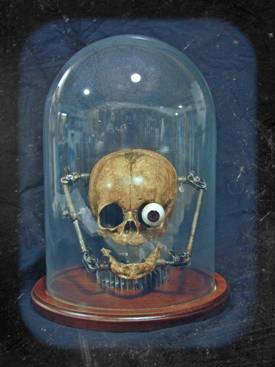
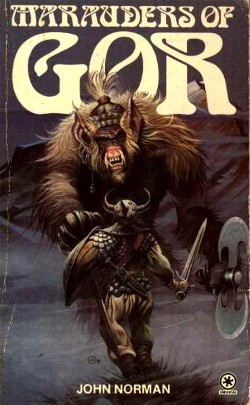 io9 has
io9 has  It’s a great week for lovers of fantasy fiction!
It’s a great week for lovers of fantasy fiction!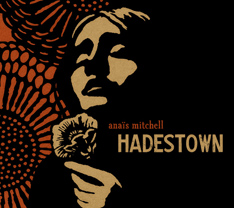 Once upon a time last November, I quoted a
Once upon a time last November, I quoted a 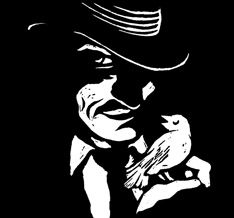 After hearing “Hey, Little Songbird,” I sort of gallumphed over to Amazon and laid all my pretty pennies down in a row.
After hearing “Hey, Little Songbird,” I sort of gallumphed over to Amazon and laid all my pretty pennies down in a row. In
In 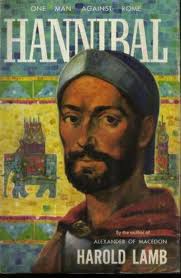 In
In 